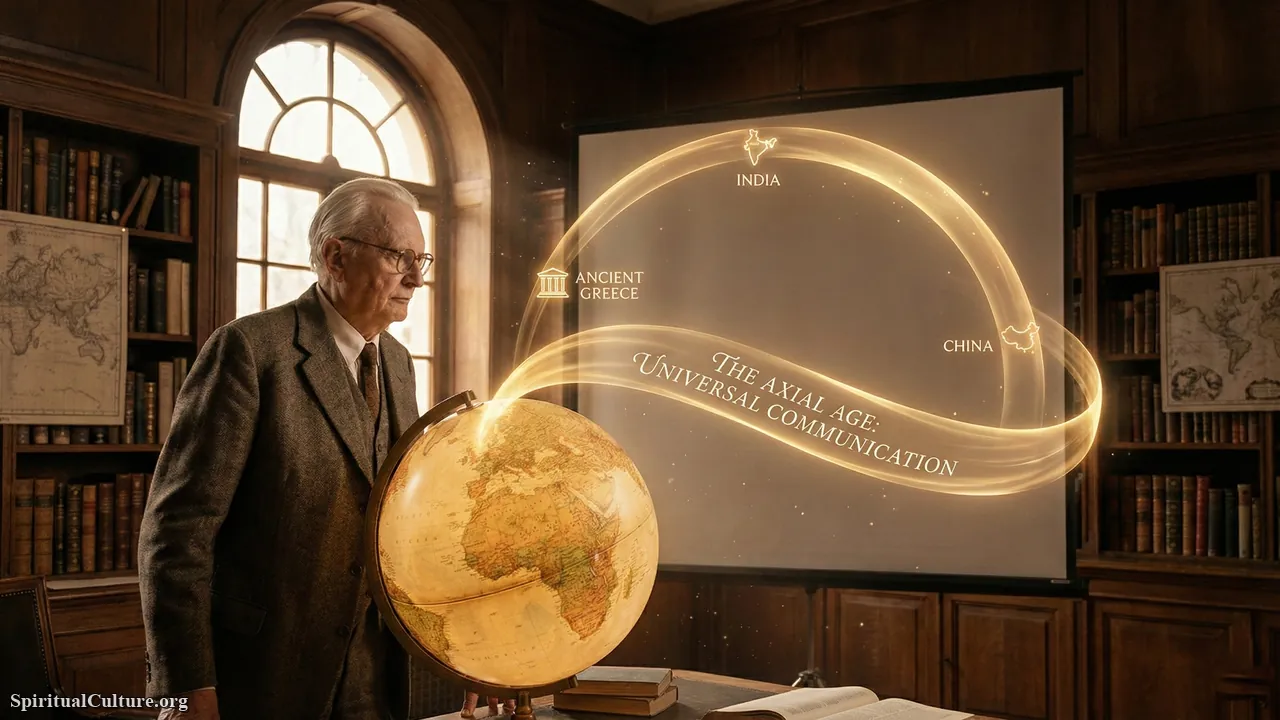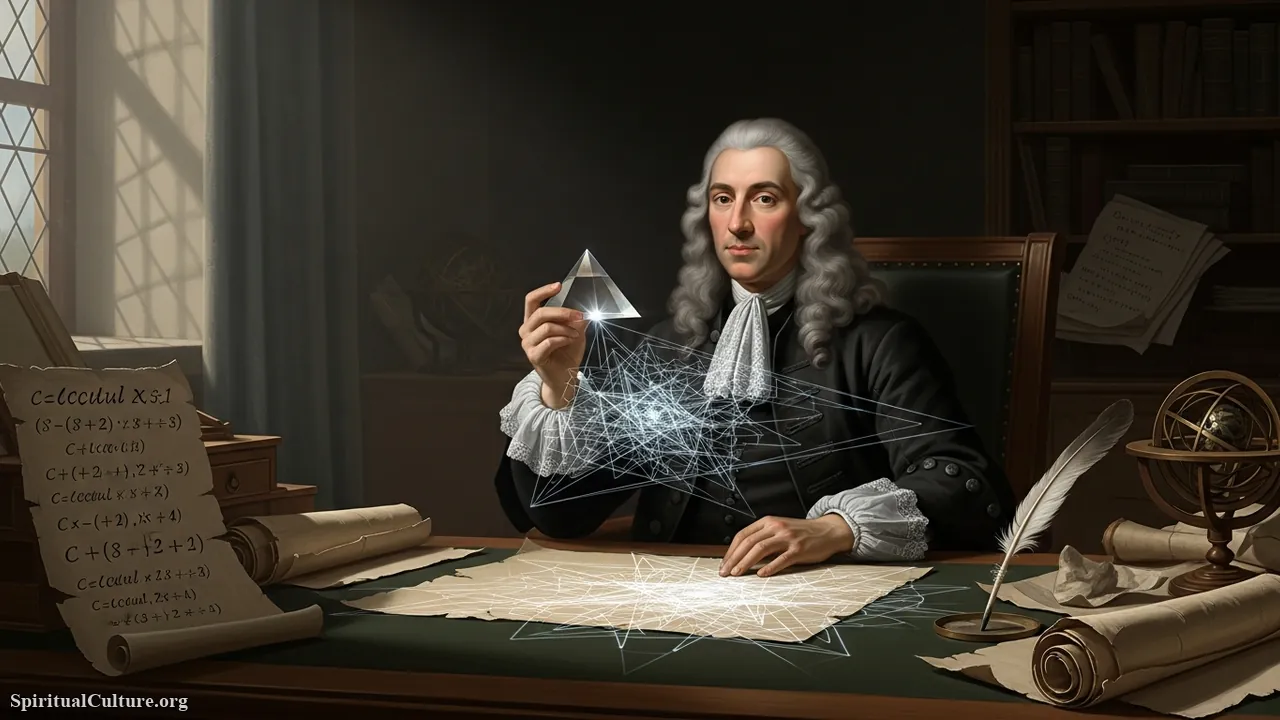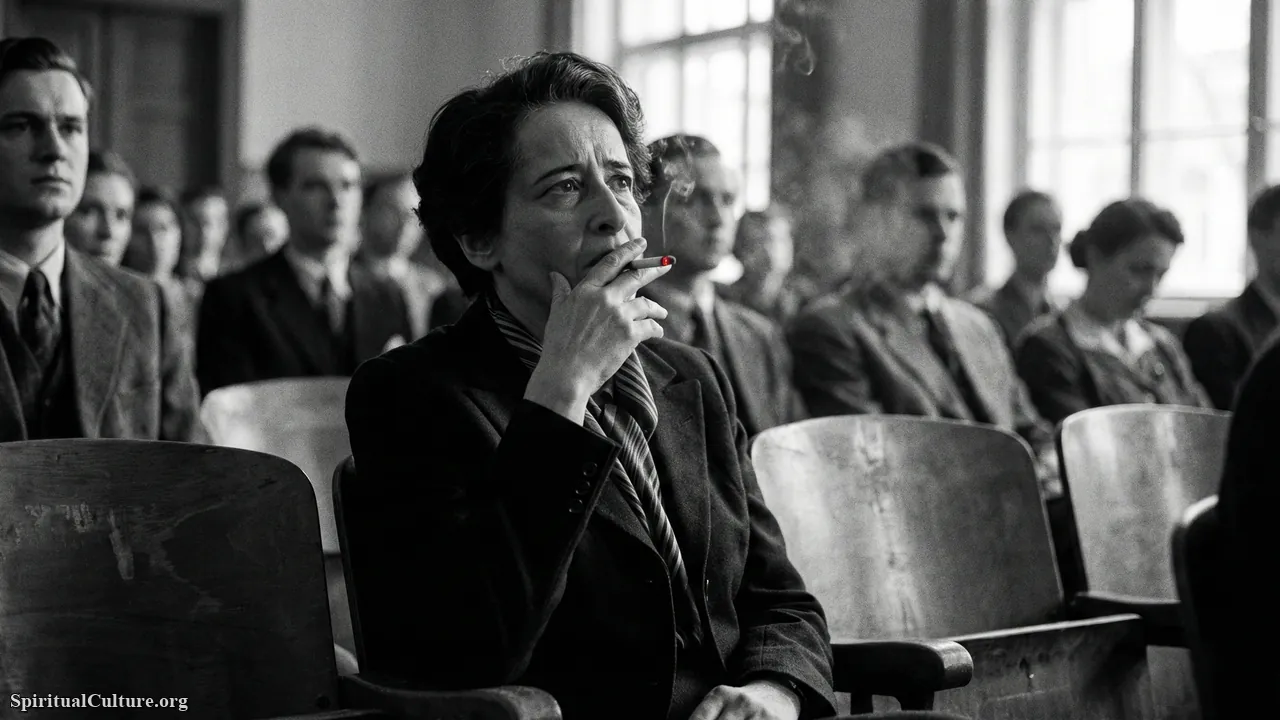Germany has long been hailed as the Land der Dichter und Denker (Land of Poets and Thinkers). From the mist-shrouded cloisters of medieval mysticism to the turbulent lecture halls of the 20th century, German philosophy has not merely analyzed the world—it has fundamentally altered how we perceive existence, God, and the human spirit. These thinkers moved beyond dry logic, delving into the “Geist” (Spirit) and the “Soul,” creating a heritage that bridges the gap between rational inquiry and spiritual depth.
In this curated ranking, Spiritual Culture moves beyond standard academic lists to highlight those figures whose work resonates with the deepest questions of meaning, suffering, and transcendence. We examine how their ideas continue to challenge our moral compass and offer pathways to personal growth in an increasingly complex world.
This analysis draws upon historical consistency, the breadth of cultural impact, and the endurance of their spiritual insights, valid as of the Current Time of Writing, November 28, 2025.
Table of the Top 10 German Philosophers with the Greatest Spiritual & Cultural Influence
| Rank | Philosopher | Key Era | Core Concept | Spiritual & Cultural Legacy |
|---|---|---|---|---|
| 1 | Immanuel Kant | 1724–1804 | Categorical Imperative | Defined the limits of reason, making room for faith and the “Moral Law within.” |
| 2 | G.W.F. Hegel | 1770–1831 | Absolute Spirit (Geist) | Viewed history as the unfolding of Spirit/God becoming self-conscious. |
| 3 | Friedrich Nietzsche | 1844–1900 | Will to Power | Challenged the crisis of nihilism and urged the self-overcoming of the human spirit. |
| 4 | Arthur Schopenhauer | 1788–1860 | The Will | Bridged Western thought with Eastern spirituality (Buddhism/Upanishads) regarding suffering. |
| 5 | Martin Heidegger | 1889–1976 | Dasein (Being-there) | Revolutionized the question of “Being” and living authentically in the face of death. |
| 6 | Meister Eckhart | c. 1260–1328 | The Divine Spark | The father of German mysticism; emphasized God’s presence within the human soul. |
| 7 | Karl Marx | 1818–1883 | Historical Materialism | Diagnosed human “alienation” and the spiritual void caused by economic oppression. |
| 8 | Hannah Arendt | 1906–1975 | The Human Condition | Explored the spiritual crisis of totalitarianism and the power of forgiveness and action. |
| 9 | Gottfried Wilhelm Leibniz | 1646–1716 | Monadology | Proposed a universe of harmony where faith and reason are perfectly reconciled. |
| 10 | Karl Jaspers | 1883–1969 | The Axial Age | Defined the “Encompassing” and the universal spiritual breakthrough of humanity. |
Top 10. Karl Jaspers (1883–1969)
Karl Jaspers, originally a psychiatrist, turned to philosophy to address the deepest anxieties of the human condition. He is perhaps best known for coining the term “Axial Age,” referring to a pivotal period in human history (800–200 BCE) where spiritual foundations were laid simultaneously across the globe—from Greece to India to China. Jaspers believed that philosophy was not a dry academic pursuit but a personal struggle for “Existenz,” a state of authentic selfhood that is only realized in communication with others.

At Spiritual Culture, we rank Jaspers for his profound concept of “Transcendence.” He argued that while we cannot know God through scientific proof, we encounter the divine through “ciphers”—symbols and experiences in the world that point to something greater than ourselves. His philosophy serves as a bridge between religious faith and secular existentialism, suggesting that human freedom is ultimately a gift from a transcendent source.
Jaspers teaches us that we are not isolated beings but are historically connected to a global spiritual heritage. His work encourages us to find meaning not in dogmatic certainty, but in the “boundless communication” between different cultures and faiths. In a polarized world, his call for universal human understanding is a spiritual imperative.
Cultural & Spiritual Highlights:
- The Axial Age: Identified the historical moment when humanity collectively discovered the “soul” and universal ethics.
- Existenz: Defined the self not as an object to be studied, but as a possibility to be realized.
- Philosophical Faith: Proposed a faith grounded in reason and personal experience rather than rigid religious dogma.
Top 9. Gottfried Wilhelm Leibniz (1646–1716)
A true polymath who invented calculus independently of Newton, Leibniz was also a visionary metaphysician who sought to reconcile religion with the emerging sciences of his day. He envisioned the universe as composed of “Monads”—indivisible, soul-like units of energy that reflect the entire cosmos. For Leibniz, the universe was not a cold machine but a living, vibrant organism orchestrated by a divine pre-established harmony.

His assertion that we live in the “best of all possible worlds” is often misunderstood as naive optimism, but deeply analyzed, it is a profound theological argument (Theodicy). Leibniz argued that God, being perfectly good and wise, created a universe with the maximum amount of variety and order. Even suffering and evil are parts of a larger, harmonious tapestry that we, with our limited perspective, cannot fully grasp.
Leibniz leaves us with a legacy of “Rational Optimism.” He challenges the modern tendency toward cynicism by suggesting that there is an underlying order and purpose to existence. His philosophy invites us to look for the interconnectedness of all things and to trust that, ultimately, the arc of the universe bends toward harmony.
Cultural & Spiritual Highlights:
- Theodicy: Coined the term to defend divine justice in the face of worldly evil.
- The Monad: Described reality as made of infinite, soul-like substances, prefiguring modern quantum interconnectedness.
- Ecumenism: Spent his life trying to reunify the Protestant and Catholic churches, driven by a spiritual desire for peace.
Top 8. Hannah Arendt (1906–1975)
Though she famously rejected the title of “philosopher” in favor of “political theorist,” Hannah Arendt’s impact on our spiritual understanding of evil and human agency is unmatched. Fleeing Nazi Germany, she confronted the darkest abyss of the 20th century. Her report on the trial of Adolf Eichmann introduced the controversial concept of the “banality of evil,” suggesting that great evil arises not from monstrosity, but from a failure of thinking and a lack of inner dialogue.

Arendt’s spiritual contribution lies in her concept of “Natality”—the capacity of human beings to begin something new. Unlike philosophers who focused on mortality (death), Arendt celebrated birth and the active life (vita activa). She posited that forgiveness and promise-keeping are the two essential spiritual faculties that allow us to undo the past and control the future, liberating us from the cycle of vengeance.
In an era of digital mobs and political polarization, Arendt’s work is a moral anchor. She reminds us that the preservation of culture and humanity requires the courage to appear in the public sphere and speak the truth. Her legacy is a call to protect the “private realm” of the soul while bravely engaging in the “public realm” of action.
Cultural & Spiritual Highlights:
- Banality of Evil: Exposed how thoughtlessness and blind obedience lead to spiritual and moral collapse.
- Natality: Celebrated the human capacity for new beginnings as a miracle that saves the world from ruin.
- Forgiveness: Identified forgiveness as the only power that releases us from the consequences of our actions.
Top 7. Karl Marx (1818–1883)
It is impossible to discuss German influence without Karl Marx. While often viewed strictly through political or economic lenses, Marx’s diagnosis of the human condition is fundamentally spiritual in its concern for “Alienation” (Entfremdung). He argued that in a system where humans are treated as mere cogs in a machine, they become estranged from their work, from nature, from each other, and ultimately from their own “species-essence.”

Marx’s famous critique of religion as the “opium of the people” is frequently misquoted to sound purely derogatory. In full context, he described religion as “the heart of a heartless world” and “the soul of soulless conditions.” He recognized that the human spirit craves solace; his error—or insight, depending on one’s view—was believing that material justice alone could satisfy that spiritual hunger. Spiritual Culture recognizes his work as a secular prophecy demanding the dignity of the human being.
The lesson we draw from Marx today goes beyond economics. It is a warning against commodifying human life. His work challenges us to ask if our current societal structures nurture the human spirit or crush it, and it compels us to seek a world where work is a creative expression of the soul rather than a means of survival.
Cultural & Spiritual Highlights:
- Theory of Alienation: Described the spiritual loss occurring when humans are disconnected from the fruits of their creativity.
- Human Emancipation: Sought a society where the free development of each is the condition for the free development of all.
- Critique of Commodification: Warned against a world where money becomes the mediator of all human relationships, replacing spiritual bonds.
Top 6. Meister Eckhart (c. 1260–1328)
Meister Eckhart stands as the towering figure of German Mysticism (Deutsche Mystik). While less cited in secular academic courses, his influence on the German language and the spiritual “interiority” of German thought is foundational. Eckhart taught that the ultimate spiritual goal is not to “please” a distant God, but to achieve a “breakthrough” where the soul and God merge into one. He famously prayed, “I pray to God to rid me of God,” seeking a truth beyond human images and concepts.

His radical preaching emphasized the “Divine Spark” (Fünklein) present in every human soul. This idea democratized spirituality; one did not need the church hierarchy to find the divine, but only needed to look inward and practice “Gelassenheit” (letting-go or detachment). This focus on inner experience laid the groundwork for the Reformation and later German Idealism.
Eckhart’s legacy is timeless. He speaks to the modern seeker who feels alienated by rigid dogma. His teaching of detachment—letting go of the ego, desires, and even our fixed ideas of the divine—offers a profound psychological and spiritual path to peace. He remains the essential philosopher for those seeking the “God beyond God.”
Cultural & Spiritual Highlights:
- The Divine Spark: The concept that a piece of the uncreated eternal exists within every human being.
- Gelassenheit (Detachment): The spiritual practice of letting go of willfulness to allow the divine will to act.
- Influence on Psychology: His ideas on the “ground of the soul” influenced Jungian psychology and modern mindfulness.
Top 5. Martin Heidegger (1889–1976)
Martin Heidegger is a figure of immense complexity and controversy, yet his masterpiece, Being and Time, completely rewired modern thought. Heidegger shifted philosophy from knowing the world to “Being-in-the-world.” He argued that we have forgotten the mystery of existence itself. He introduced the concept of “Dasein” (Being-there) to describe the unique human experience of being aware of our own existence.

From a spiritual perspective, Heidegger’s analysis of technology is chillingly prophetic. He warned that modern technology frames the world merely as a “standing reserve” of resources to be used, stripping nature and humanity of their sacred mystery. He called for a return to “dwelling”—a poetic and reverent way of existing on the earth. His concept of “Being-towards-death” is not morbid, but a call to live authentically; realizing we will die is the only thing that shakes us out of the numbness of the crowd.
Heidegger challenges us to stop “calculating” and start “thinking” in a meditative sense. He urges a return to wonder. Despite his compromised political history, his philosophical insights into the rootlessness of modern man remain essential for understanding our current spiritual crisis of disconnection.
Cultural & Spiritual Highlights:
- Authenticity: The spiritual imperative to reclaim one’s self from the “They” (the unthinking herd).
- Critique of Technology: Warned that viewing the world as mere resources destroys the spiritual mystery of Being.
- Dwelling: A concept of living in harmony with the earth, protecting and preserving it rather than mastering it.
Top 4. Arthur Schopenhauer (1788–1860)
Arthur Schopenhauer was the first major Western philosopher to seriously integrate Eastern spirituality—specifically Buddhism and the Upanishads—into his worldview. He famously described the world as “Will and Representation.” For Schopenhauer, the fundamental reality is a blind, striving “Will” that drives all nature. Because this Will is insatiable, life is fundamentally characterized by suffering and dissatisfaction.

While this sounds pessimistic, Schopenhauer offered a path of salvation through the denial of the Will. He believed that through aesthetic contemplation (art/music) and compassion, we can momentarily silence the striving ego. He saw compassion not just as a duty, but as a metaphysical realization that “I” and “You” are one—the veil of Maya (illusion) is lifted, and we see the suffering of others as our own.
Schopenhauer is the philosopher of empathy. He teaches that the recognition of shared suffering is the basis of all morality. In a culture often obsessed with toxic positivity, Schopenhauer’s honest acknowledgment of life’s pain is strangely comforting and deeply validating, offering a spiritual solidarity with all living beings.
Cultural & Spiritual Highlights:
- The Will: Identified the irrational, driving force of nature that causes suffering (paralleling Buddhist Trishna or craving).
- Aesthetics as Salvation: Elevated music and art as spiritual vehicles that temporarily free us from the slavery of the ego.
- Ethics of Compassion: Based morality on the realization that the separation between individuals is an illusion.
Top 3. Friedrich Nietzsche (1844–1900)
Friedrich Nietzsche is often misunderstood as a nihilist, but he was actually a doctor trying to cure it. When he declared “God is dead,” it was a cultural diagnosis: the old structures of meaning (religion/tradition) had collapsed in the modern era. Nietzsche’s spiritual mission was to find a way to say “Yes” to life despite this collapse. He introduced the Übermensch (Overman) as a figure who creates their own values and gives style to their character.

Nietzsche’s concept of Amor Fati (Love of Fate) is a profound spiritual discipline. It asks us not just to bear the difficulties of our lives, but to love them—to wish for nothing to be different, forward or backward, for all eternity. This is the ultimate affirmation of existence. His critique of “slave morality” challenges us to stop resenting the strong and to take responsibility for our own power and creativity.
Nietzsche serves as a wake-up call. He demands that we become the “poets of our lives.” For Spiritual Culture, his legacy is the empowerment of the individual spirit to overcome resentment and to find joy and sanctity in the immediate, physical world, rather than waiting for an afterlife.
Cultural & Spiritual Highlights:
- Amor Fati: The spiritual practice of loving one’s fate, including the suffering, as necessary for the whole.
- Revaluation of Values: Challenged inherited morality, asking us to consciously choose values that enhance life.
- Self-Overcoming: The idea that the human being is a bridge, something to be surpassed through constant growth.
Top 2. G.W.F. Hegel (1770–1831)
Georg Wilhelm Friedrich Hegel is the titan of German Idealism. His influence is so vast that it is often said all later philosophy is a reaction against him. Hegel’s great contribution was introducing “History” into spirituality. He did not see God as a static being in the sky, but as “Geist” (Spirit/Mind) that evolves and learns about itself through human history. For Hegel, history is the “slaughter-bench” but also the laboratory where freedom is realized.

His “Dialectic” (Thesis-Antithesis-Synthesis) explains how spiritual growth happens. We encounter a truth, we encounter its opposite, and we struggle until we reach a higher truth that includes both. This applies to civilizations and to individual personal growth. Hegel teaches that conflict and suffering are not accidental; they are the “labor of the negative” necessary for the Spirit to mature.
Hegel’s vision is breathtakingly grand. He elevates human culture, art, religion, and the state to sacred status, viewing them as the ways Spirit manifests in the world. He teaches us that we are not insignificant specks, but active participants in the cosmos waking up to itself. His work validates the struggle of history as a meaningful process toward freedom.
Cultural & Spiritual Highlights:
- Phenomenology of Spirit: Mapped the evolution of consciousness from simple sensing to Absolute Knowing.
- The Dialectic: A tool for understanding how conflict drives spiritual and cultural evolution.
- History as Progress: The optimistic belief that despite setbacks, the world is moving toward greater self-awareness and freedom.
Top 1. Immanuel Kant (1724–1804)
Immanuel Kant sits at the summit of this list because he is the gatekeeper of modern thought. Before Kant, philosophy assumed we could know the world exactly as it is. Kant’s “Copernican Revolution” showed that we only know the world as our mind structures it. He drew a strict line between what we can know (science/phenomena) and what we cannot know but must believe (God/soul/noumena). This saved faith from science and science from religion.

Spiritually, Kant’s greatest gift is the “Categorical Imperative.” He located moral authority not in a church or a king, but within the rational human will. He argued we must treat humanity—ourselves and others—always as an “end,” never merely as a “means.” This is the secular philosophical foundation of human dignity and rights. He spoke of the “Starry Heavens above and the Moral Law within” as the two things that fill the mind with ever-new awe.
Kant’s legacy is the “Autonomy” of the soul. He liberated the human spirit from childhood obedience, demanding that we take responsibility for our own ethical logic. He established that true spirituality is ethical action. In a world of relativism, Kant’s demand for a universal moral law remains the bedrock of human civilization.
Cultural & Spiritual Highlights:
- The Categorical Imperative: The universal rule to act only according to maxims that could become universal laws.
- Human Dignity: The absolute prohibition against using people as tools; the foundation of modern Human Rights.
- Limits of Reason: Humbled human intellect, famously stating he “denied knowledge in order to make room for faith.”
Conclusion
From the mystical surrender of Meister Eckhart to the ethical rigor of Kant and the existential fire of Nietzsche, German philosophy offers a vast landscape of spiritual tools. These thinkers did not agree on everything—indeed, they often vehemently disagreed—but they shared a common conviction: that the unexamined life is not worth living.
They teach us that spirituality is not just about peace and quiet; it is about struggle, dialectic, responsibility, and the courage to think. By engaging with these minds, we do not just learn history; we sharpen our own souls. As we navigate the technological and moral complexities of the 21st century, the voices of these German masters remind us that the human spirit is capable of transcending its conditions, creating meaning, and striving for the “Absolute.”





